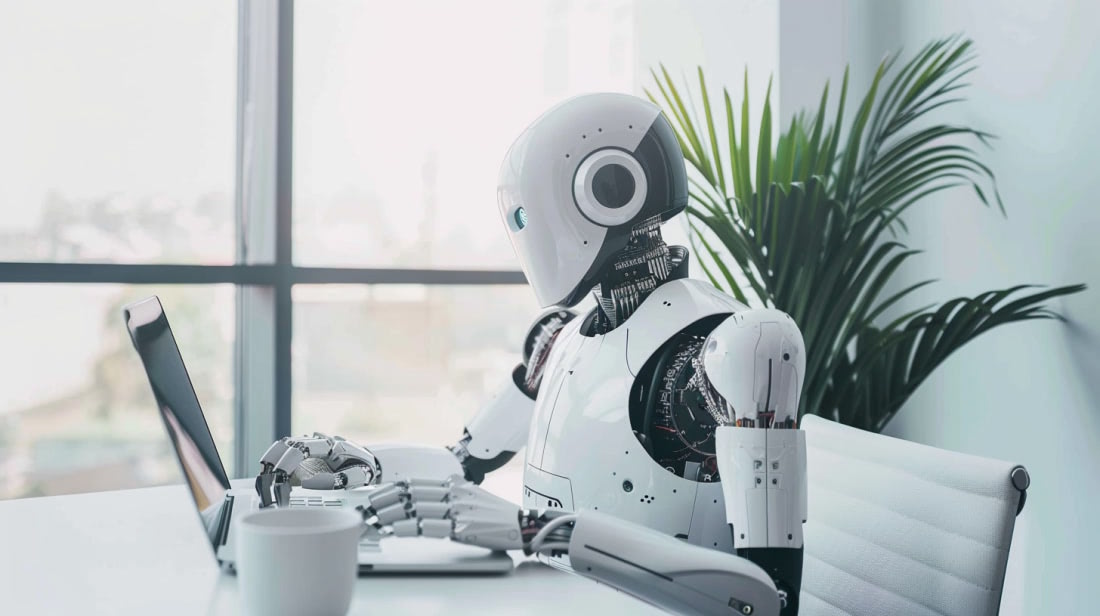
|
Getting your Trinity Audio player ready...
|
Artificial Intelligence (AI) has become an integral part of modern technology, influencing various sectors from healthcare to finance. AI can analyze large amounts of data, identify patterns, and make decisions with minimal human help, changing how we solve problems and improve efficiency. AI is changing how web design and SEO work, providing new solutions to improve user experience and search engine rankings.
Importance of AI in Web Design and SEO
In web design, AI brings more sophisticated automated design, personalized user experiences, and predictive analytics. AI-powered tools can create design layouts, enhance images, and personalize content according to user behavior, making websites attractive and user-friendly.
Similarly, AI is reshaping SEO by providing advanced tools for keyword analysis, content optimization, and performance tracking. AI algorithms can predict search trends, automate content suggestions, and improve search engine rankings through intelligent data analysis. AI can help businesses improve visibility and engagement in the digital landscape, giving them an advantage over competitors.
This article explores AI applications in web design and SEO, focusing on benefits, tools, and future trends in the industry.
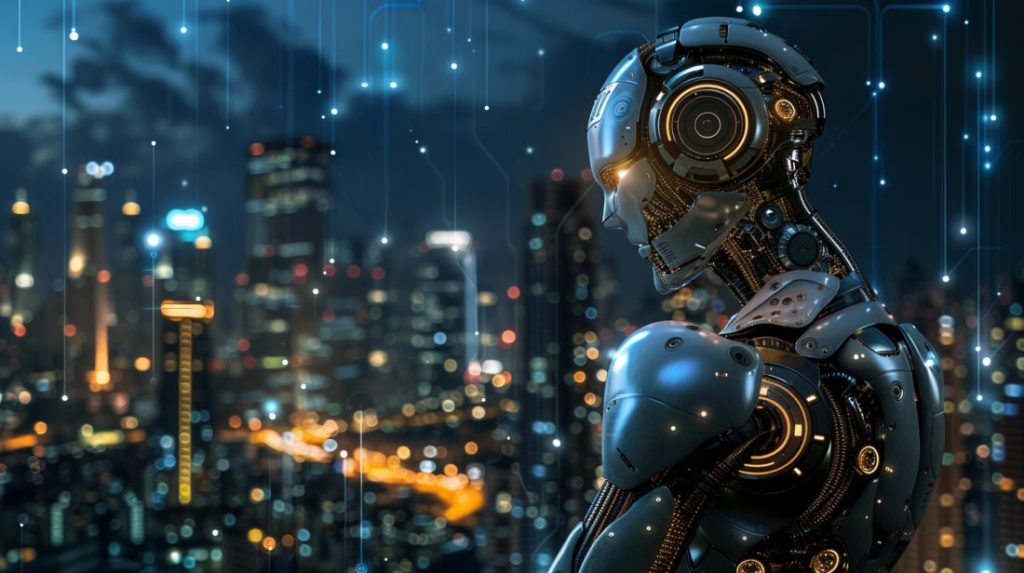
Understanding AI and Its Applications in Web Design
Definition and Basic Concepts of AI
Artificial Intelligence (AI) refers to the simulation of human intelligence in machines designed to think and act like humans. These systems are capable of learning from experience, understanding complex concepts, recognizing patterns, and making decisions. AI encompasses various subfields, including machine learning, natural language processing, and computer vision, each contributing to different aspects of web design and development.
Key AI Technologies Used in Web Design
Machine Learning
Machine Learning (ML) is a subset of AI that focuses on developing algorithms that enable computers to learn from and make predictions based on data. In web design, ML can analyze user behavior to predict preferences and optimize website layouts. For example, ML algorithms can recommend design changes that enhance user engagement by identifying patterns in user interactions.
Natural Language Processing
Natural Language Processing (NLP) is the ability of a computer program to understand, interpret, and generate human language. NLP is used in web design to improve content creation, chatbots, and customer service interactions. AI-powered chatbots can provide instant support to users by understanding and responding to their queries in natural language, enhancing the overall user experience.
Computer Vision
Computer Vision (CV) involves teaching machines to interpret and understand visual information from the world, such as images and videos. In web design, CV can be used to automate image tagging, optimize visual content, and even create visually appealing layouts. CV algorithms can analyze and edit images, ensuring they meet the design criteria and enhance the aesthetic appeal of the website.
Benefits of AI in Web Design
Enhanced User Experience
AI significantly enhances the user experience by providing personalized and interactive elements on websites. AI algorithms can analyze user behavior and preferences to customize the content, layout, and functionality of a website, making it more relevant and engaging for each visitor.
Personalization
Personalization is a critical aspect of modern web design, and AI excels in this area. By leveraging data on user behavior, preferences, and demographics, AI can create personalized experiences that cater to individual needs. This includes personalized content recommendations, targeted advertisements, and adaptive website layouts that change based on user interactions.
Efficient Design Processes
AI streamlines the web design process by automating repetitive and time-consuming tasks. AI-powered design tools can generate design templates, suggest improvements, and even create entire websites based on predefined criteria. This allows designers to focus on more creative and strategic aspects of web development, improving overall efficiency and productivity.
In conclusion, AI technologies such as machine learning, natural language processing, and computer vision are revolutionizing web design by enhancing user experiences, personalizing content, and making design processes more efficient. As AI continues to evolve, its impact on web design will only grow, offering even more innovative solutions and opportunities.
AI Tools and Platforms for Web Design
Popular AI-Powered Design Tools
Adobe Sensei
Adobe Sensei is an AI and machine learning framework integrated into Adobe’s suite of products. It enhances the design process by automating repetitive tasks, providing intelligent editing suggestions, and enabling advanced image and video recognition. Key features include:
- Automated Image Tagging: Automatically tags and categorizes images, making them easier to search and organize.
- Content-Aware Fill: Removes unwanted objects from images seamlessly, filling in the background with matching elements.
- Personalized Content Recommendations: Analyzes user preferences to suggest relevant content and design elements.
Wix ADI
Wix Artificial Design Intelligence (ADI) is an AI-powered platform that simplifies website creation. It generates fully functional websites based on user inputs, significantly reducing the time and effort required. Key features include:
- Automated Website Creation: Users answer a few questions, and Wix ADI builds a personalized website tailored to their needs.
- Design Customization: Offers various design options and layouts that can be further customized to suit the user’s preferences.
- Adaptive Layouts: Automatically adjusts website layouts to ensure optimal viewing across different devices.
Bookmark AiDA
Bookmark AiDA (Artificial Intelligence Design Assistant) is an AI-powered web design platform that creates websites in minutes. It leverages machine learning to understand user requirements and generate custom websites. Key features include:
- Rapid Website Development: AiDA creates a unique website within minutes based on user inputs.
- Drag-and-Drop Editing: Users can easily customize their websites using a simple drag-and-drop interface.
- Continuous Improvement: AiDA learns from user interactions and continuously improves its design suggestions over time.
Case Studies: Successful Implementation of AI in Web Design
Case Study 1: The Grid
The Grid is an AI-driven web design platform that automatically designs and builds websites. One of its notable success stories is the creation of personalized websites for small businesses. By using AI to analyze content and user behavior, The Grid generates unique website designs that adapt to user needs, resulting in higher engagement and customer satisfaction.
Case Study 2: Tailor Brands
Tailor Brands is an AI-powered branding platform that helps businesses create logos, websites, and marketing materials. One of its success stories involves a startup that needed a complete branding solution. Tailor Brands’ AI generated a professional logo and website design, enabling the startup to establish a strong online presence quickly and affordably.
Case Study 3: Firedrop
Firedrop employs an AI named Sacha to build websites using conversational interfaces. One of its successful implementations was for a non-profit organization that required a user-friendly website. Sacha guided the organization through the design process, resulting in a customized website that effectively communicated their mission and attracted more donors.
In conclusion, AI-powered tools like Adobe Sensei, Wix ADI, and Bookmark AiDA are revolutionizing web design by automating complex tasks and providing personalized design solutions. Case studies of platforms like The Grid, Tailor Brands, and Firedrop demonstrate the successful application of AI in creating engaging and effective websites for various industries. As AI continues to advance, its role in web design will only become more significant, offering even more innovative and efficient solutions.
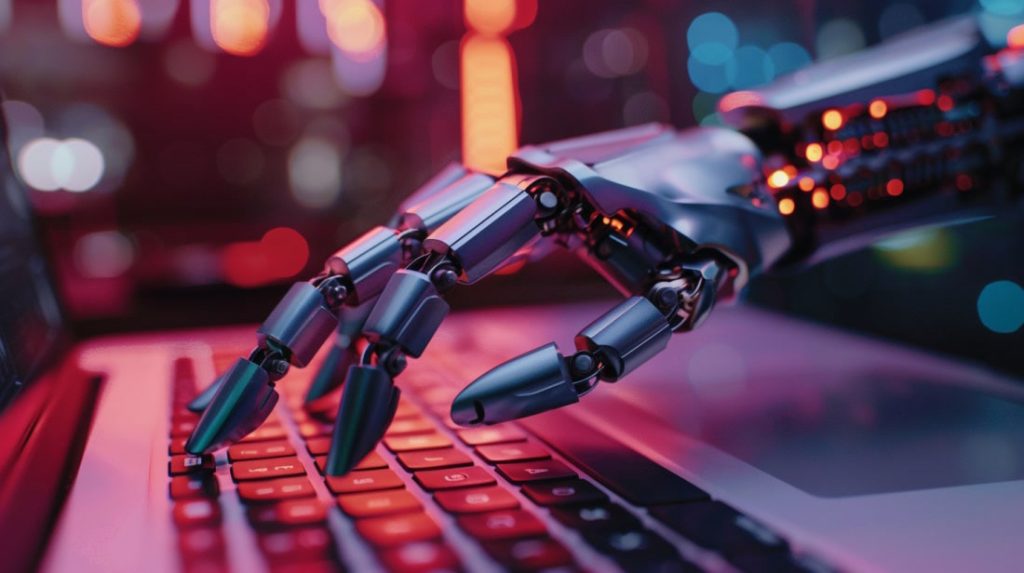
Integrating AI in SEO Strategies
How AI Transforms SEO Practices
AI has revolutionized SEO by providing advanced tools and techniques to optimize content, analyze keywords, and predict trends. By leveraging AI, businesses can achieve better search engine rankings, enhance user engagement, and make data-driven decisions. Here are some key areas where AI transforms SEO practices:
Content Creation and Optimization
AI tools can generate high-quality content, optimize existing content for better SEO performance, and personalize content to match user intent. These tools analyze vast amounts of data to identify what type of content resonates with the target audience and suggest improvements accordingly. For example:
- Automated Content Generation: AI can create articles, blog posts, and social media updates based on specific keywords and topics.
- Content Enhancement: AI tools suggest edits, keyword placement, and structural improvements to make content more SEO-friendly.
- Personalized Content Recommendations: AI analyzes user behavior and preferences to recommend personalized content that increases engagement.
Keyword Analysis and Research
AI enhances keyword analysis by identifying high-value keywords, analyzing competitor strategies, and predicting keyword trends. AI-powered tools can process large datasets to uncover hidden opportunities and provide insights that human analysis might miss. Key benefits include:
- Keyword Suggestions: AI generates a list of relevant keywords based on current search trends and user queries.
- Competitor Analysis: AI tools analyze competitors’ keywords and strategies to identify gaps and opportunities.
- Long-Tail Keywords: AI helps identify long-tail keywords that are less competitive and have higher conversion rates.
Predictive Analysis
AI’s predictive capabilities enable businesses to anticipate future trends and adjust their SEO strategies accordingly. Predictive analysis uses historical data, machine learning algorithms, and trend analysis to forecast search engine behavior and user preferences. This helps in:
- Trend Forecasting: AI predicts upcoming search trends and helps businesses create content that aligns with future user interests.
- Performance Prediction: AI estimates the potential performance of SEO strategies, allowing businesses to focus on the most promising tactics.
- User Behavior Analysis: AI analyzes user interactions to predict how they will engage with content, enabling better optimization.
AI-Driven SEO Tools
Google RankBrain
Google RankBrain is an AI algorithm that helps Google understand search queries and deliver more relevant results. It uses machine learning to interpret complex queries and match them with the most appropriate web pages. Key features include:
- Query Interpretation: RankBrain understands the context and intent behind search queries, improving the accuracy of search results.
- Content Relevance: It evaluates the relevance of web pages based on user interactions and adjusts rankings accordingly.
- Continuous Learning: RankBrain continuously learns from user behavior to improve search result accuracy over time.
Clearscope
Clearscope is an AI-powered content optimization tool that helps create SEO-friendly content. It provides keyword suggestions, content structure recommendations, and real-time analysis to ensure content meets SEO best practices. Key features include:
- Keyword Optimization: Clearscope identifies relevant keywords and suggests optimal usage throughout the content.
- Content Analysis: It evaluates content for readability, keyword density, and overall SEO performance.
- Competitive Insights: Clearscope analyzes top-performing content in the target niche to provide actionable insights.
MarketMuse
MarketMuse is an AI-driven content research and optimization platform that helps create comprehensive and authoritative content. It uses AI to analyze content gaps, recommend topics, and optimize content for better search engine rankings. Key features include:
- Content Briefs: MarketMuse generates detailed content briefs with keyword suggestions, topic clusters, and structure guidelines.
- Content Auditing: It audits existing content to identify gaps and areas for improvement.
- Topic Modeling: MarketMuse uses AI to identify related topics and subtopics, helping create in-depth and relevant content.
In conclusion, AI significantly enhances SEO strategies by improving content creation and optimization, providing advanced keyword analysis, and enabling predictive analysis. Tools like Google RankBrain, Clearscope, and MarketMuse demonstrate the power of AI in transforming SEO practices, helping businesses achieve better search engine rankings and engage their target audience more effectively.
Benefits of AI in SEO
Improved Search Rankings
AI significantly improves search rankings by optimizing various aspects of SEO, from content creation to keyword analysis. Here’s how AI contributes to better search engine rankings:
- Automated Content Optimization: AI tools analyze existing content and suggest improvements, such as keyword placement, meta tags, and internal linking. This ensures that the content is optimized for search engines, leading to higher rankings.
- Dynamic Content Adaptation: AI can adjust content in real-time based on user behavior and search engine algorithm changes, ensuring that the website remains relevant and competitive.
- Better Understanding of Search Intent: AI algorithms like Google RankBrain help search engines understand user queries better, matching them with the most relevant content. By aligning content with user intent, websites can achieve higher rankings.
Enhanced User Engagement
AI enhances user engagement by personalizing the user experience and making websites more interactive and user-friendly. Key benefits include:
- Personalized Content Recommendations: AI analyzes user behavior and preferences to recommend personalized content, increasing user engagement and time spent on the site.
- Chatbots and Virtual Assistants: AI-powered chatbots provide instant responses to user queries, improving user satisfaction and engagement. These bots can also guide users through the website, enhancing their overall experience.
- Predictive Personalization: AI predicts user needs and preferences, delivering personalized content and product recommendations. This tailored approach leads to higher engagement and conversion rates.
Data-Driven Decision Making
AI empowers businesses with data-driven insights, enabling them to make informed decisions and refine their SEO strategies. Key advantages include:
- Comprehensive Data Analysis: AI tools can process vast amounts of data quickly and accurately, providing insights into user behavior, content performance, and keyword trends. This allows businesses to identify what works and what doesn’t, refining their strategies accordingly.
- Real-Time Analytics: AI offers real-time data analysis, allowing businesses to monitor their SEO performance continuously and make adjustments as needed. This agility helps in staying ahead of competitors and adapting to changes in search engine algorithms.
- Predictive Analytics: AI uses historical data to predict future trends, helping businesses anticipate changes in user behavior and search engine algorithms. Having foresight allows you to make proactive adjustments to your strategy, ensuring that your SEO performance remains strong and consistent.
In summary, the integration of AI in SEO brings numerous benefits, including improved search rankings, enhanced user engagement, and data-driven decision-making. By leveraging AI technologies, businesses can optimize their SEO strategies, deliver personalized experiences, and stay competitive in the ever-evolving digital landscape.
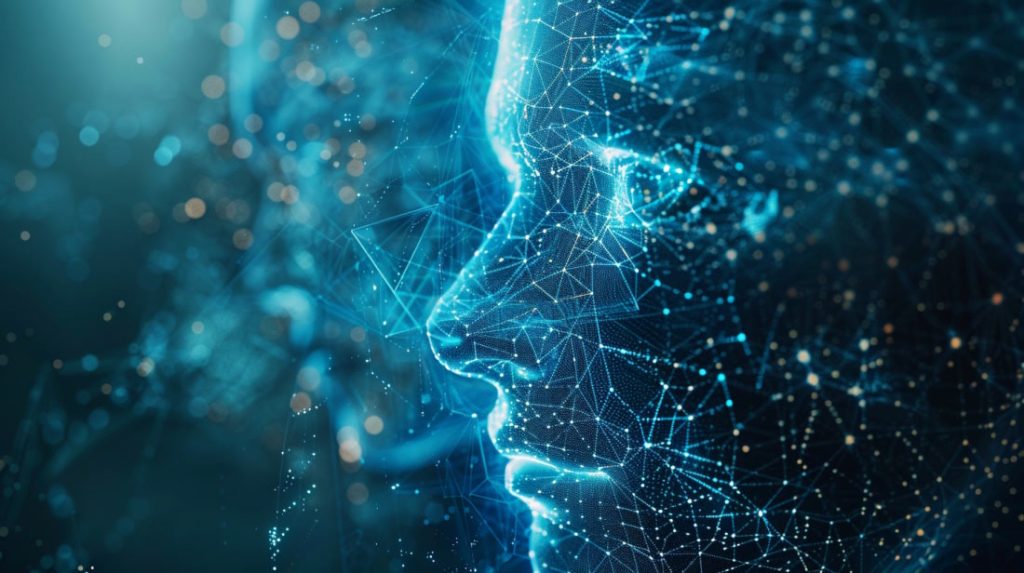
Challenges and Considerations
Ethical Concerns in AI Usage
The integration of AI in SEO and web design raises several ethical issues that must be addressed to ensure responsible use:
- Bias and Fairness: AI algorithms can unintentionally perpetuate biases present in the training data. This can lead to unfair treatment of certain groups or inaccurate content recommendations. Ensuring diverse and representative training data, along with regular audits, can help mitigate bias.
- Transparency: AI systems often operate as “black boxes,” making it difficult to understand how decisions are made. Ensuring transparency in AI processes is crucial for building trust and accountability. Clear documentation and explainable AI techniques can help in this regard.
- Manipulation and Misuse: AI can be used to manipulate search rankings and user behavior unethically. For instance, generating fake reviews or misleading content to boost rankings. Establishing guidelines and ethical standards for AI use in SEO is necessary to prevent misuse.
Data Privacy and Security
AI relies heavily on data, raising significant privacy and security concerns that need careful management:
- Data Collection: The collection of user data for AI analysis must comply with privacy regulations such as GDPR and CCPA. Businesses need to ensure they have user consent and follow data minimization principles, collecting only the necessary information.
- Data Storage: Secure storage of collected data is essential to prevent breaches and unauthorized access. Implementing robust encryption and access controls can help safeguard sensitive information.
- Anonymization: Anonymizing data can protect user identities while still allowing for meaningful analysis. Techniques like data masking and pseudonymization should be employed to ensure privacy.
- Data Breaches: AI systems can be targeted by cyber-attacks, leading to data breaches. Regular security audits, intrusion detection systems, and incident response plans are critical to mitigate such risks.
Balancing Automation with Human Creativity
While AI can automate many aspects of SEO and web design, it’s important to strike a balance between automation and human creativity:
- Creative Judgment: AI can optimize and generate content, but it lacks the nuanced understanding and emotional depth that human creativity brings. Humans should oversee content creation to ensure it resonates emotionally with the audience.
- Strategic Insight: AI can provide data-driven insights, but strategic decisions require human intuition and industry knowledge. Combining AI’s analytical power with human strategic thinking leads to more effective SEO strategies.
- User Experience: AI can personalize and optimize user experiences, but humans need to ensure that AI-generated designs and recommendations align with the brand’s voice and values. Regular human review and intervention are necessary to maintain consistency and authenticity.
- Ethical Oversight: Human oversight is essential to ensure ethical AI use. This includes monitoring AI outputs for bias, ensuring transparency, and adhering to ethical guidelines. An AI ethics committee can be established to oversee these aspects.
In conclusion, while AI offers significant benefits for SEO and web design, it also presents challenges and considerations that must be carefully managed. Addressing ethical concerns, ensuring data privacy and security, and balancing automation with human creativity are crucial steps in harnessing the power of AI responsibly and effectively.
Future Trends in AI for Web Design and SEO
Emerging AI Technologies
As AI continues to evolve, several emerging technologies are set to revolutionize web design and SEO:
- Generative AI: Tools like GPT-4 and beyond will enable the creation of more sophisticated and human-like content. These models can generate text, images, and even code, making the web design process faster and more efficient.
- Voice Search Optimization: With the rise of voice-activated devices, optimizing for voice search will become crucial. AI technologies will help understand and optimize natural language queries, ensuring that content is easily discoverable via voice search.
- AI-Driven User Experience (UX) Design: AI will further personalize user experiences by analyzing user behavior in real-time and adjusting website layouts, content, and features to meet individual needs.
- Augmented Reality (AR) and Virtual Reality (VR): AI will play a significant role in integrating AR and VR into web design, creating immersive and interactive experiences for users.
- Advanced Analytics and Insights: AI will provide deeper insights into user behavior and content performance through advanced analytics, helping businesses make more informed decisions.
Predictions for AI’s Role in Web Design and SEO
Looking ahead, AI is expected to play an even more central role in web design and SEO:
- Seamless Automation: AI will automate more aspects of web design and SEO, from content creation to site maintenance, reducing the need for manual intervention and increasing efficiency.
- Hyper-Personalization: Websites will offer highly personalized experiences, with AI predicting user needs and preferences to deliver tailored content and recommendations.
- Enhanced Visual Content Creation: AI will generate high-quality images, videos, and graphics, making it easier to produce visually appealing content that engages users.
- Smarter SEO Strategies: AI will refine SEO strategies through predictive analytics, allowing businesses to stay ahead of search engine algorithm changes and optimize their content proactively.
- Improved Accessibility: AI will help create more accessible websites by automatically generating alt text for images, transcriptions for videos, and ensuring compliance with accessibility standards.
Preparing for the Future: Skills and Knowledge
To stay competitive in the evolving landscape of web design and SEO, professionals need to develop new skills and knowledge:
- AI Literacy: Understanding the basics of AI and machine learning, including how AI algorithms work and their applications in web design and SEO.
- Data Analysis: Developing skills in data analysis to interpret AI-generated insights and make data-driven decisions.
- Content Creation: Enhancing creative skills to work alongside AI tools in generating high-quality, engaging content.
- Technical SEO: Keeping up with the latest SEO best practices and understanding how AI impacts search algorithms and ranking factors.
- UX Design: Learning how to design user-centric experiences that leverage AI to meet individual user needs.
- Ethical AI Practices: Understanding the ethical implications of AI use and ensuring responsible and fair AI practices in web design and SEO.
In conclusion, the future of AI in web design and SEO promises exciting advancements and opportunities. By staying informed about emerging technologies, predicting AI’s evolving role, and acquiring the necessary skills, professionals can harness the full potential of AI to create innovative, effective, and ethical web design and SEO strategies.
Conclusion
AI has fundamentally transformed the fields of web design and SEO, bringing numerous benefits and advancements. In web design, AI technologies like machine learning, natural language processing, and computer vision enhance user experiences, enable personalization, and streamline design processes. Tools such as Adobe Sensei, Wix ADI, and Bookmark AiDA exemplify how AI can automate and optimize web design, resulting in more efficient and creative outputs.
In SEO, AI’s influence is evident through improved search rankings, enhanced user engagement, and data-driven decision-making. AI-driven SEO tools like Google RankBrain, Clearscope, and MarketMuse facilitate advanced keyword analysis, content optimization, and predictive analytics, enabling businesses to stay competitive and relevant in the digital landscape.
Final Thoughts on Embracing AI Technologies
Embracing AI technologies in web design and SEO is no longer optional but a necessity for staying ahead in the digital era. AI offers unparalleled opportunities to enhance creativity, efficiency, and effectiveness in both fields. However, it also presents challenges, such as ethical considerations, data privacy, and the need to balance automation with human creativity.
To fully leverage AI’s potential, businesses and professionals must stay informed about emerging technologies, continuously update their skills, and adopt ethical practices. By doing so, they can harness AI’s power to create innovative, user-centric, and high-performing web designs and SEO strategies.
As AI continues to evolve, its role in web design and SEO will only grow, bringing new possibilities and challenges. The key to success lies in understanding and integrating AI effectively, ensuring that it complements human creativity and strategic thinking. Embracing AI technologies with a thoughtful and informed approach will enable businesses to thrive in the dynamic and ever-changing digital landscape.
Recommended Reading
“Artificial Intelligence: A Guide for Thinking Humans” by Melanie Mitchell
- A comprehensive overview of AI concepts and their applications, providing a solid foundation for understanding AI in web design and SEO.
“AI for Marketing and Product Innovation” by A.K. Pradeep, Andrew Appel, and Stan Sthanunathan
- This book explores how AI is transforming marketing and product innovation, including practical insights for web design and SEO.
“Machine Learning for Dummies” by John Paul Mueller and Luca Massaron
- A beginner-friendly introduction to machine learning, covering the basics and offering practical examples relevant to web design and SEO.
“SEO 2024: Learn Search Engine Optimization with Smart Internet Marketing Strategies” by Adam Clarke
- A detailed guide to the latest SEO strategies, including the role of AI in optimizing content and improving search rankings.
Online Courses and Tutorials
Coursera: AI For Everyone by Andrew Ng
- An accessible introduction to AI, covering its applications and implications, suitable for professionals looking to integrate AI into their SEO and web design practices.
Udemy: Complete SEO Training + SEO for WordPress Websites
- A comprehensive course covering SEO fundamentals, advanced strategies, and the integration of AI tools for optimizing websites.
LinkedIn Learning: AI in Web Design
- A course focusing on how AI can be applied to various aspects of web design, from automating tasks to enhancing user experiences.
HubSpot Academy: SEO Training Course
- Free SEO training covering essential concepts, strategies, and tools, including AI-driven techniques for improving search performance.
